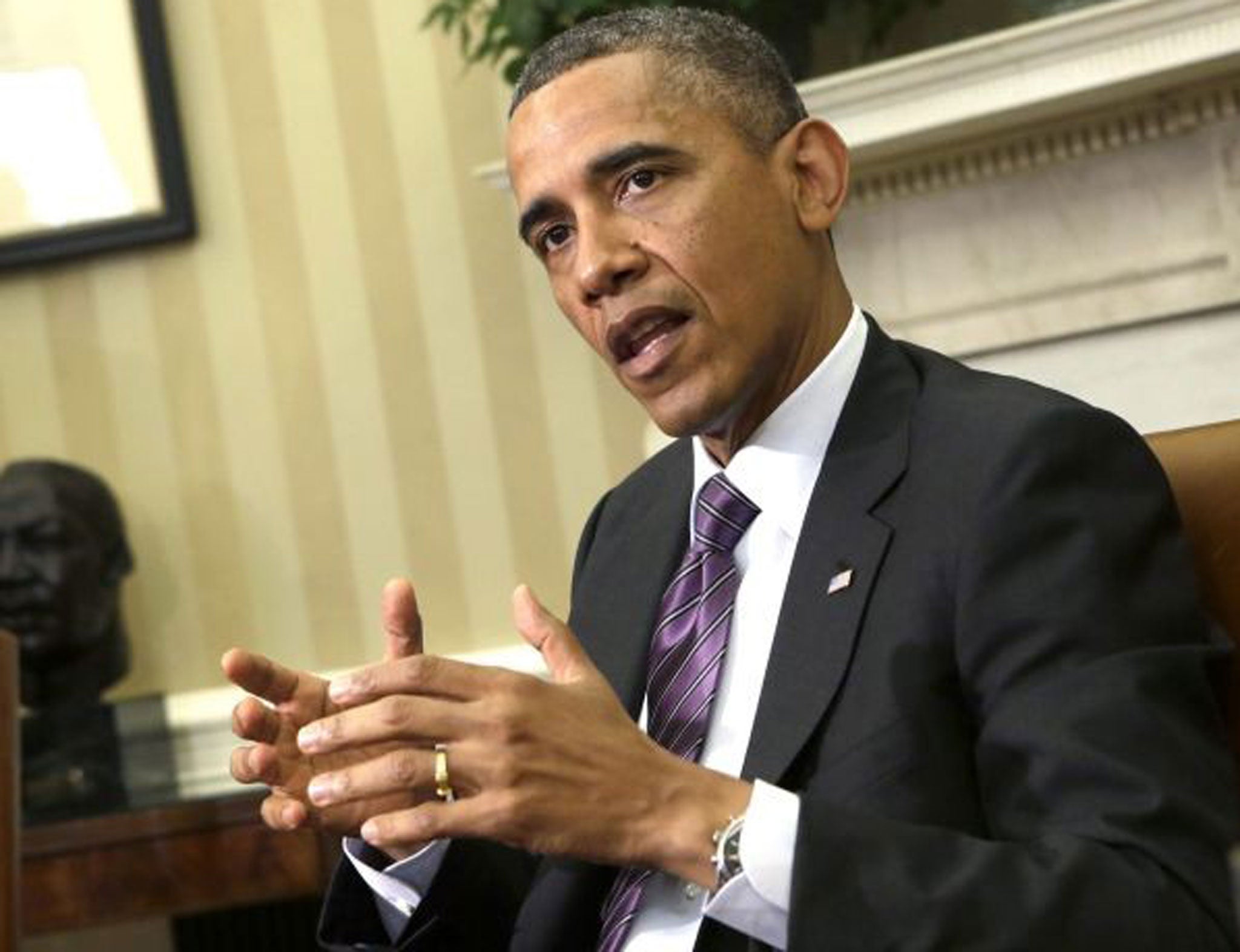Barack Obama says Syria chemical weapon use would change US 'calculus' over intervention
President insists chemical attacks are still a 'red line'

Your support helps us to tell the story
From reproductive rights to climate change to Big Tech, The Independent is on the ground when the story is developing. Whether it's investigating the financials of Elon Musk's pro-Trump PAC or producing our latest documentary, 'The A Word', which shines a light on the American women fighting for reproductive rights, we know how important it is to parse out the facts from the messaging.
At such a critical moment in US history, we need reporters on the ground. Your donation allows us to keep sending journalists to speak to both sides of the story.
The Independent is trusted by Americans across the entire political spectrum. And unlike many other quality news outlets, we choose not to lock Americans out of our reporting and analysis with paywalls. We believe quality journalism should be available to everyone, paid for by those who can afford it.
Your support makes all the difference.President Barack Obama has insisted that use of chemical weapons by Syria's Bashar al-Assad would change his "calculus" over launching military action in the country, but said too little is known about alleged sarin attacks to justify it now.
He had previously said that chemical attacks were a "red line" with "enormous consequences."
Syria's civil war, now in its third year, is thought to have killed more than 70,000 and displaced more than one million. It is fought between forces loyal to President Assad and rebels, mostly from the disparate Free Syrian Army.
The conflict has spilled periodically across the ceasefire line and Syria's borders with Lebanon, Iraq and Turkey, threatening to engulf the region.
And on Friday the government had to deny using chemical weapons, as a video surfaced of a man showing symptoms of being affected by the nerve agent sarin. It denounced as “lies” Western claims that sarin was detected in soil samples sent from the front line.
US lawmakers from both parties have expressed concern that inaction could embolden Assad and perhaps other countries including North Korea and Iran.
And government officials said on Thursday that the Syrian government probably had used chemical weapons twice in March, an assessment which followed similar conclusions from Britain, France, Israel and Qatar — key allies eager for a more aggressive response to Syrian conflict.
Obama, in his first comments about the new intelligence disclosure, said yesterday: "For the Syrian government to utilize chemical weapons on its people crosses a line that will change my calculus and how the United States approaches these issues."
"I've meant what I said."
Some lawmakers voiced concern that if Obama doesn't make good on his promise to respond aggressively if it's shown that Assad used chemical weapons, his inaction could send a damaging message to the world.
"There's no question that when the United States takes a position that this crosses a line that our failure to respond has implications," said David Cicilline, a Democratic member of the House of Representatives Foreign Affairs Committee. "So that if we, in fact, determine that chemical weapons were used, I think the expectation is that we and the coalition and others take some action."
White House officials insisted Obama's caution was not an indication that the line was shifting. Officials said firm evidence of a chemical weapons attack would trigger a U.S. response — unspecified — and would not be contingent on the size and scope of the use.
Obama met at the White House with Jordan's King Abdullah II, whose country is suffering amid an influx of refugees spilling over its border with Syria. The president promised to vigorously pursue more information about chemical weapons attacks, including exactly who might be responsible and how they might have been carried out.
But the president set no deadline for answers.
"The president wants the facts," spokesman Jay Carney said. "And I'm not going to set a timeline because the facts need to be what drives this investigation, not a deadline."
Join our commenting forum
Join thought-provoking conversations, follow other Independent readers and see their replies
Comments